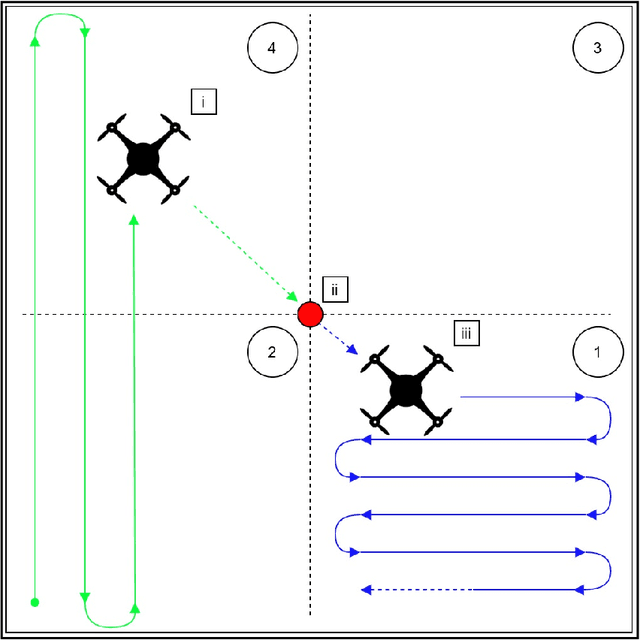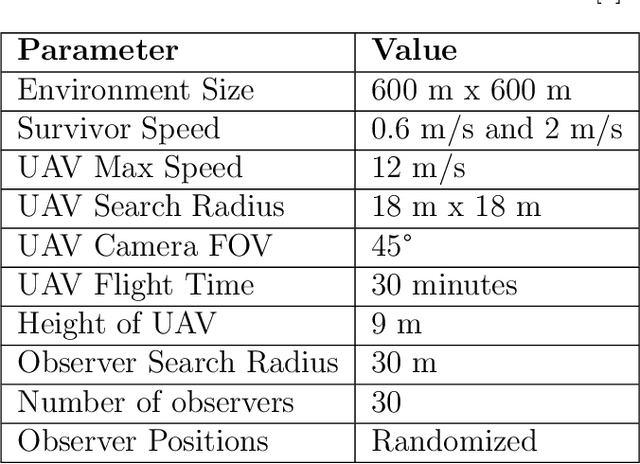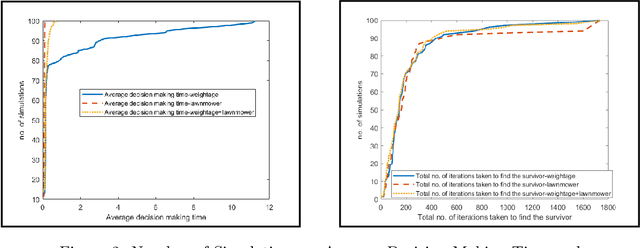Weight-Based Exploration for Unmanned Aerial Teams Searching for Multiple Survivors
Paper and Code
Dec 21, 2020



During floods, reaching survivors in the shortest possible time is a priority for rescue teams. Given their ability to explore difficult terrain in short spans of time, Unmanned Aerial Vehicles (UAVs) have become an increasingly valuable aid to search and rescue operations. Traditionally, UAVs utilize exhaustive lawnmower exploration patterns to locate stranded survivors, without any information regarding the survivor's whereabouts. In real life disaster scenarios however, on-ground observers provide valuable information to the rescue effort, such as the survivor's last known location and heading. In earlier work, a Weight Based Exploration (WBE) model, which utilizes this information to generate a prioritized list of waypoints to aid the UAV in its search mission, was proposed. This approach was shown to be effective for a single UAV locating a single survivor. In this paper, we extend the WBE model to a team of UAVs locating multiple survivors. The model initially partitions the search environment amongst the UAVs using Voronoi cells. The UAVs then utilize the WBE model to locate survivors in their partitions. We test this model with varying survivor locations and headings. We demonstrate the scalability of the model developed by testing the model with aerial teams comprising several UAVs.
 Add to Chrome
Add to Chrome Add to Firefox
Add to Firefox Add to Edge
Add to Edge